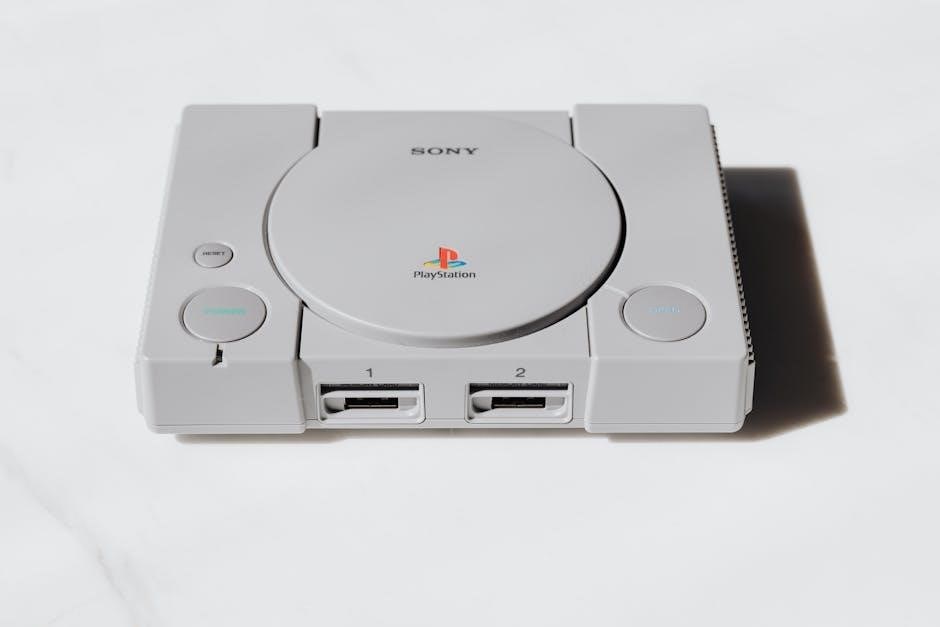The AWS D17.1/D17.1M:2024 specification outlines essential requirements for fusion welding in aerospace applications, ensuring quality and safety in aircraft and space hardware manufacturing. It is a crucial document for the industry, available in PDF format for easy access and reference.
1.1 Overview of the Standard
The AWS D17.1/D17.1M:2024 specification is an American National Standard that provides requirements for fusion welding in aerospace applications. It applies to both flight and non-flight hardware, ensuring high-quality and safe welding practices. The standard covers design, personnel qualification, welding procedures, inspection criteria, and nondestructive examination (NDE) methods. It serves as a critical guide for manufacturers and engineers in the aerospace industry, promoting consistency and reliability in welding processes.
1.2 Abstract and Scope
The AWS D17.1/D17.1M:2024 specification provides a concise summary of requirements for fusion welding in aerospace applications. Its scope includes guidelines for welding aircraft and space hardware, addressing materials like aluminum and nickel alloys. The document outlines essential processes, personnel qualifications, and inspection criteria to ensure high-quality and reliable welding. It serves as a comprehensive reference for maintaining safety and performance standards in aerospace manufacturing and repair.
1.3 Publication History and Relevance
First published in 1966, the AWS D17.1/D17.1M standard has evolved to meet advancing aerospace welding technologies. The 2024 edition incorporates updates addressing new materials and techniques, ensuring compliance with current industry demands. Its relevance lies in providing standardized practices for manufacturers and engineers, fostering consistency and innovation in aerospace welding. Regular updates reflect the dynamic nature of the industry, making it a vital resource for professionals seeking to maintain high-quality standards.

Key Requirements for Fusion Welding in Aerospace
The AWS D17.1/D17.1M:2024 specification outlines critical requirements for fusion welding in aerospace, including design standards, personnel qualifications, and rigorous inspection criteria to ensure safety and reliability.
2.1 Design and Personnel Qualification
The AWS D17.1/D17.1M:2024 specification emphasizes strict design and personnel qualification requirements. Design qualification involves rigorous analyses by the Engineering Authority to ensure compliance with aerospace standards. Personnel, including welders and inspectors, must meet specific certification criteria, with ongoing training and testing to maintain proficiency. These qualifications are critical to ensuring the reliability and safety of fusion welding in aerospace applications.
2.2 Inspection and Acceptance Criteria
The AWS D17.1/D17.1M:2024 specification details rigorous inspection processes, including nondestructive examination (NDE) methods like radiography and ultrasonic testing. Acceptance criteria require visual and dimensional checks to ensure weld quality; Mechanical testing validates weld properties, and all results must meet specified standards. Non-conformities are documented and addressed through corrective actions, ensuring compliance with aerospace safety and quality requirements.
2.3 Nondestructive Examination (NDE) Methods
The AWS D17.1/D17.1M:2024 specification outlines nondestructive examination (NDE) methods for aerospace welding, including radiography, ultrasonic testing, and surface methods like liquid penetrant and magnetic particle testing. These techniques ensure defect detection without damaging the weld. NDE results are documented and evaluated against acceptance criteria to verify compliance with aerospace quality standards, ensuring the structural integrity of flight and non-flight hardware components.

Aerospace Applications and Compliance
AWS D17.1/D17.1M:2024 applies to fusion welding for aerospace flight and non-flight hardware, ensuring compliance with FAA regulations and engineering authority requirements for aircraft, rotorcraft, and space systems.
3.1 FAA Regulations and Engineering Authority
The AWS D17.1/D17.1M:2024 specification emphasizes compliance with FAA regulations for aircraft, rotorcraft, and space hardware. The Engineering Authority is responsible for design analyses and process control measures to ensure safety and reliability. This section outlines the necessary steps to meet federal aviation standards, ensuring that welding processes align with regulatory requirements for flight-critical components. Compliance with these guidelines is essential for maintaining the integrity of aerospace systems and ensuring public safety.
3.2 Applicability to Flight and Non-Flight Hardware
The AWS D17.1/D17.1M:2024 specification distinguishes between requirements for flight and non-flight hardware. Flight hardware, such as aircraft and spacecraft components, must adhere to stringent guidelines to ensure reliability and safety. Non-flight hardware, while important, may have less critical requirements but still must meet specific standards. This section ensures that welding processes are appropriately tailored to the intended application, maintaining the highest levels of quality and performance in aerospace systems. Compliance is essential for both categories to guarantee overall safety and durability.

Procedure Qualification and Welder Testing
This section outlines procedure qualification and welder testing requirements, ensuring processes meet aerospace standards. It includes specifics for WPS development and testing for Class A, B, and C welds.
4.1 Class A, B, and C Welds Requirements
Class A welds are critical structural components requiring rigorous testing and documentation. Class B welds involve non-critical structural parts, while Class C pertains to non-structural applications. Each class has specific qualification procedures, including WPS development and testing. Welders must meet stringent criteria to ensure compliance with aerospace standards, emphasizing quality and reliability in all weld categories.
4.2 Welding Procedure Specifications (WPS)
A WPS outlines detailed parameters for welding processes, including materials, joint designs, filler metals, and shielding gases. It must be qualified and documented to ensure compliance with aerospace standards. The WPS is essential for maintaining consistency and quality in welding operations, serving as a reference for welders and inspectors. Deviations from the WPS are strictly controlled to guarantee reliability and safety in aerospace applications.

Availability and Purchase Options

The AWS D17.1/D17.1M:2024 is available in PDF and hardcopy formats through ANSI and AWS, priced at $174 for members and $232 for non-members, ensuring accessibility.
5.1 Sources for PDF and Hardcopy Formats
The AWS D17.1/D17.1M:2024 standard is available for purchase in PDF and hardcopy formats through the American Welding Society (AWS) official website and the ANSI Standards Store. Additionally, it can be sourced from authorized distributors like Techstreet and IHS Markit. Hardcopy versions are typically available for shipping, while PDFs are downloadable immediately after purchase, ensuring convenient access for professionals in the aerospace industry.
5.2 Pricing for Members and Non-Members
The AWS D17.1/D17.1M:2024 standard is priced at $174.00 for AWS members and $232.00 for non-members. Discounts are available for members, making it cost-effective for industry professionals to access the document. Pricing includes access to both PDF and hardcopy formats, depending on the preferred format. Payments can be made securely through the AWS online store, ensuring a seamless purchasing experience for all users.

Significance in the Aerospace Industry
AWS D17.1/D17.1M:2024 is critical for ensuring high-quality and safe welding practices in aerospace manufacturing, directly impacting the reliability and durability of aircraft and space hardware.
6.1 Role of AWS in Advancing Welding Technology
AWS plays a pivotal role in advancing welding technology through the development of standards like AWS D17.1/D17.1M:2024. These specifications ensure that welding processes meet stringent aerospace requirements, fostering innovation and improving manufacturing efficiency. By providing updated guidelines, AWS helps maintain safety and quality in the production of aircraft and space components, making it a cornerstone of the aerospace welding industry.
6.2 Impact on Quality and Safety Standards
The AWS D17.1/D17.1M:2024 standard significantly enhances quality and safety in aerospace welding by establishing rigorous requirements for fusion welding and non-destructive examination (NDE). It ensures consistency and reliability in manufacturing aircraft and space hardware, critical for preventing failures. Compliance with these standards is essential for maintaining high safety levels, safeguarding both equipment and passengers.

Recent Updates and Amendments
The AWS D17.1/D17.1M:2024 edition introduces updated fusion welding requirements, enhanced NDE methods, and revised compliance guidelines to align with advancing aerospace manufacturing technologies and safety standards.
7.1 Summary of Changes in the 2024 Edition
The AWS D17.1/D17.1M:2024 edition introduces updated requirements for fusion welding in aerospace applications. Key changes include new clauses for advanced welding technologies, revised acceptance criteria for nondestructive examinations, and enhanced guidelines for procedure qualification. The updated standard also improves clarity and consistency in documentation, ensuring alignment with current industry practices and safety standards for aerospace hardware manufacturing.

7.2 Compliance and Implementation Guidelines
Compliance with AWS D17.1/D17.1M:2024 requires adherence to detailed implementation guidelines, including updated procedure qualification steps and enhanced documentation protocols. Organizations must ensure all welding processes meet the revised acceptance criteria and that personnel are trained on new requirements. Regular audits and conformity assessments are recommended to maintain compliance, ensuring aerospace hardware meets stringent safety and quality standards outlined in the specification.
The AWS D17.1/D17.1M:2024 specification remains a cornerstone for advancing aerospace welding, ensuring safety and quality. Future trends will focus on innovative technologies and sustainable practices, driving industry progress.
8.1 Expected Evolution of the Specification
The AWS D17.1/D17.1M:2024 specification is anticipated to evolve with advancements in welding technologies, addressing emerging materials and techniques. Future updates may incorporate additive manufacturing, automation, and enhanced NDE methods, ensuring the standard remains aligned with industry needs and regulatory requirements. The focus will be on improving efficiency, reducing costs, and maintaining high safety standards for aerospace applications.
8.2 Importance of Staying Updated
Staying updated with the AWS D17.1/D17.1M:2024 specification is crucial for ensuring compliance with the latest industry standards and advancements in aerospace welding. Regular updates provide insights into new technologies, methodologies, and regulatory changes, enabling organizations to maintain high-quality production and safety standards. Failing to stay informed can lead to non-compliance, potentially compromising project integrity and operational efficiency.
